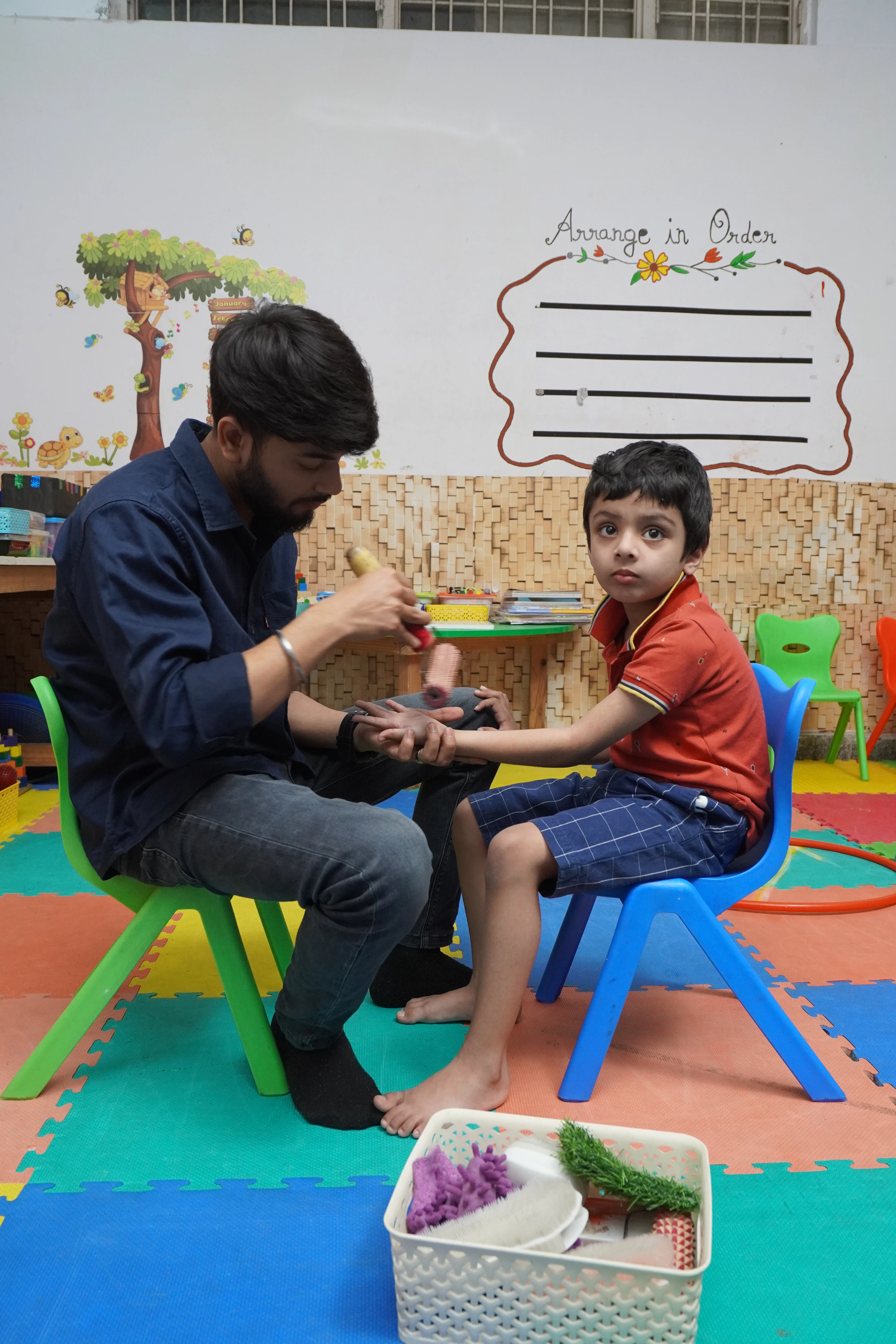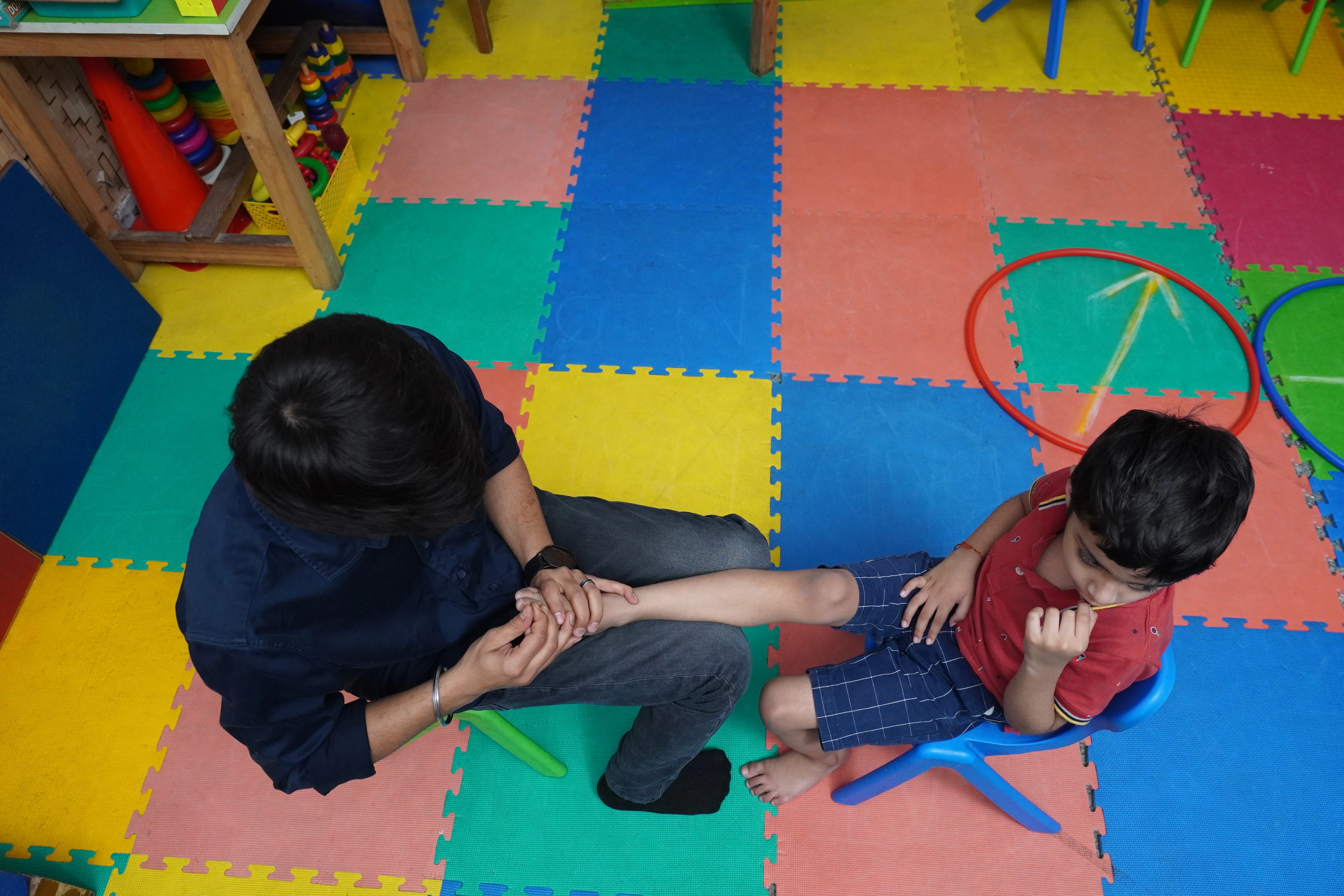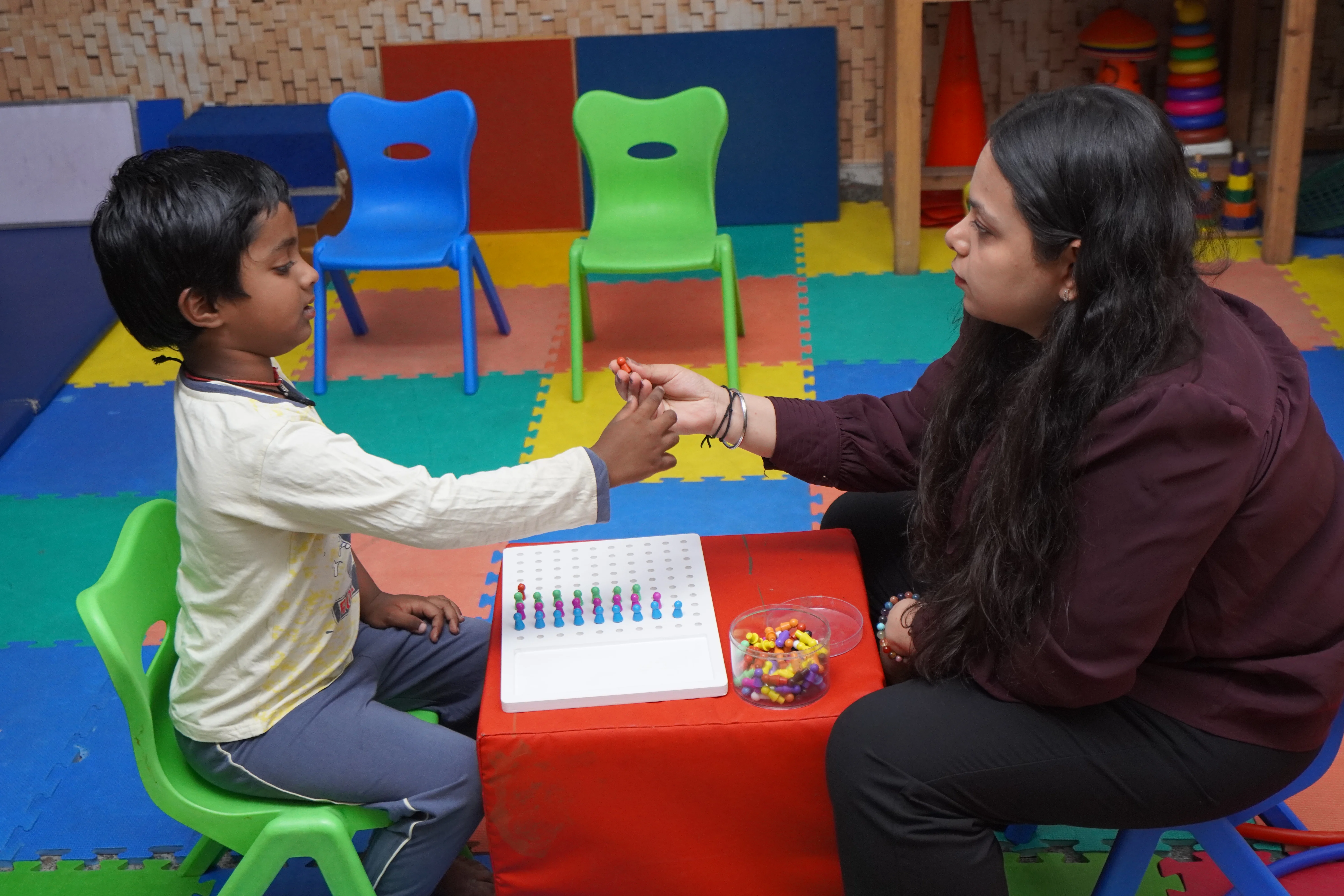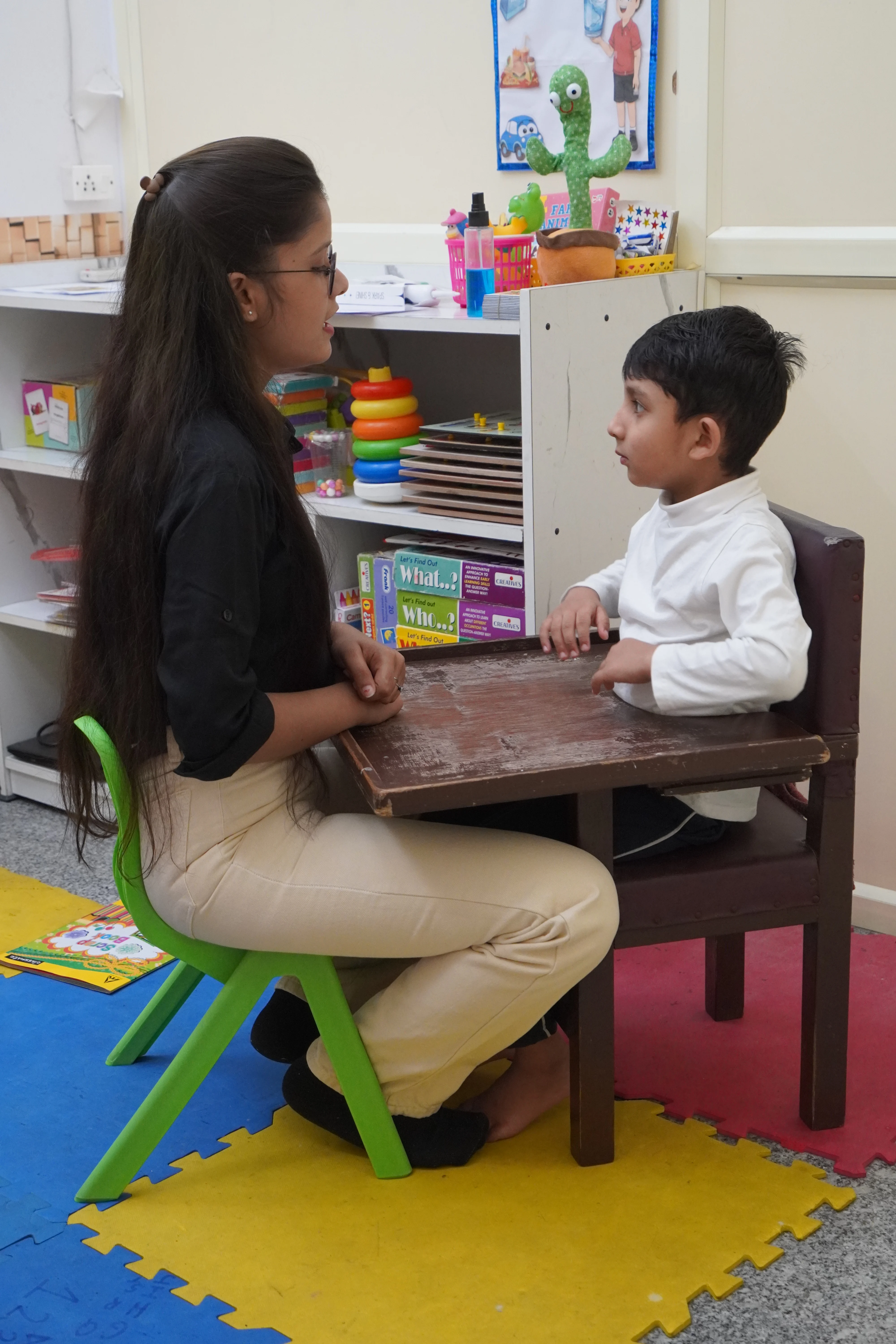Play Therapy
Introduction to Play Therapy
Play therapy is a therapeutic approach primarily used to help children express their emotions, resolve conflicts, and develop coping strategies. At our Play Therapy Center in Madhya Pradesh, we offer a safe and nurturing environment where children can freely explore their emotions and experiences through play.
Benefits of Play Therapy
Play therapy provides numerous benefits to children, especially those experiencing emotional, behavioral, or social challenges. Some key benefits include:
- Improved emotional expression and regulation
- Enhanced communication skills
- Better problem-solving abilities
- Boosted self-esteem and confidence
- Relief from anxiety, trauma, or grief

How Play Therapy Works
During play therapy sessions, children use toys, art, and other creative materials to express their feelings and experiences. A licensed play therapist observes and interacts with the child, guiding them to understand their emotions and work through any underlying issues. This non-directive approach allows the child to lead the session, fostering a sense of control and self-expression.
Why Choose Our Play Therapy Center in Madhya Pradesh
Our Play Therapy Center in Madhya Pradesh offers specialized services to children and families in need. We have a team of experienced and licensed play therapists who are dedicated to providing personalized care for each child. Our center is designed to create a warm, welcoming space for children to feel safe and supported as they work through their challenges.
Our Services
- Individual Play Therapy Sessions
- Group Therapy for Children
- Family Counseling and Support
- Parental Guidance and Education
- Trauma and Grief Counseling
Individual Play Therapy
Individual play therapy is tailored to the specific needs of the child, focusing on their unique emotional and behavioral challenges. This one-on-one approach allows children to express themselves freely while receiving guidance and support from a skilled therapist.
Group Therapy for Children
Group therapy sessions help children develop social skills, empathy, and teamwork. These sessions encourage children to interact with peers, share experiences, and practice new coping strategies in a safe, structured setting.
Conclusion
Play therapy is an effective and compassionate approach to supporting children's emotional and psychological well-being. At our Play Therapy Center in Madhya Pradesh, we are committed to helping children navigate their emotions and build a strong foundation for the future. Contact us today to learn more about our services and how we can assist your child in their journey of growth and healing.
Service Delivery and Implementation
The IEP outlines how and where the child will receive special education services. Depending on the child’s needs, services may be provided in various settings, including:
Inclusion Classroom:
The child remains in the general education classroom with their peers but receives additional support, such as a special education teacher, teaching assistant, or adaptive tools.
Resource Room:
The child spends part of the day in a specialized classroom where they receive focused instruction in specific subjects like reading or math.
Self-Contained Classroom:
For children with more significant needs, this setting provides specialized instruction in a smaller, structured environment, separate from the general education classroom.
Specialized Schools:
In some cases, children may attend schools specifically designed to address particular disabilities or needs.
How is it Done?
Speech and Language Therapy is a highly individualized process that begins with a thorough assessment of the child's communication abilities. A Speech-Language Pathologist (SLP) typically conducts the assessment, which may include:
Parent/Caregiver Interviews:
Input from parents and caregivers provides valuable insights into the child’s communication skills in everyday settings.
Observation Periods:
The SLP observes the child in different situations, such as playing or interacting with others, to identify communication challenges.
Standardized Tests:
These tests measure various aspects of speech and language, such as vocabulary, comprehension, articulation, and fluency.
Who Can Benefit from It?
Children who struggle with daily activities such as dressing, writing, or playing, and those with developmental delays.
Throughout the therapy process, the Occupational Therapist continuously monitors the child's progress, adjusting the treatment plan as needed to ensure that the therapy is effective and aligned with the child’s evolving needs and goals. The therapist also provides parents and caregivers with strategies and activities to practice at home, ensuring the child receives consistent support in their developmental journey.
Book An Appointment




Donate us to achive our goal
that they cannot foresee.
